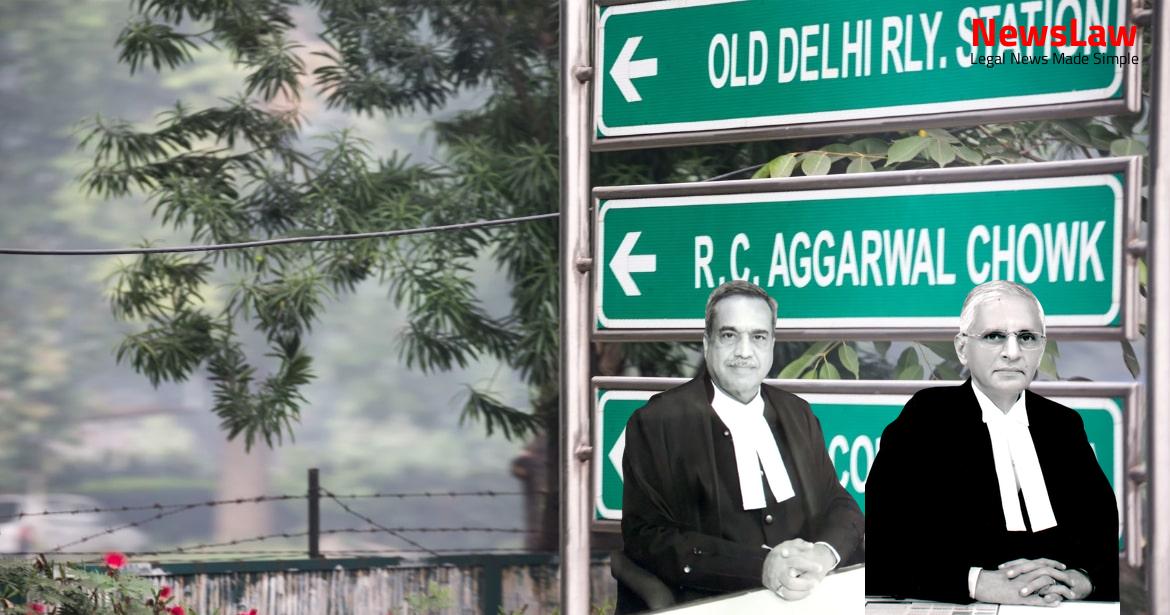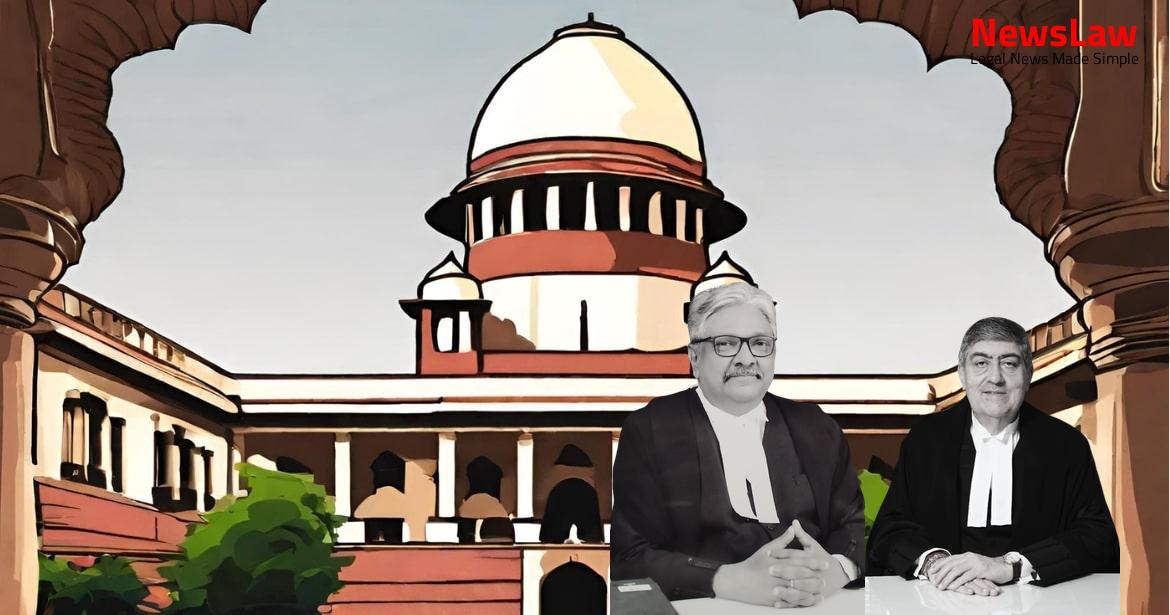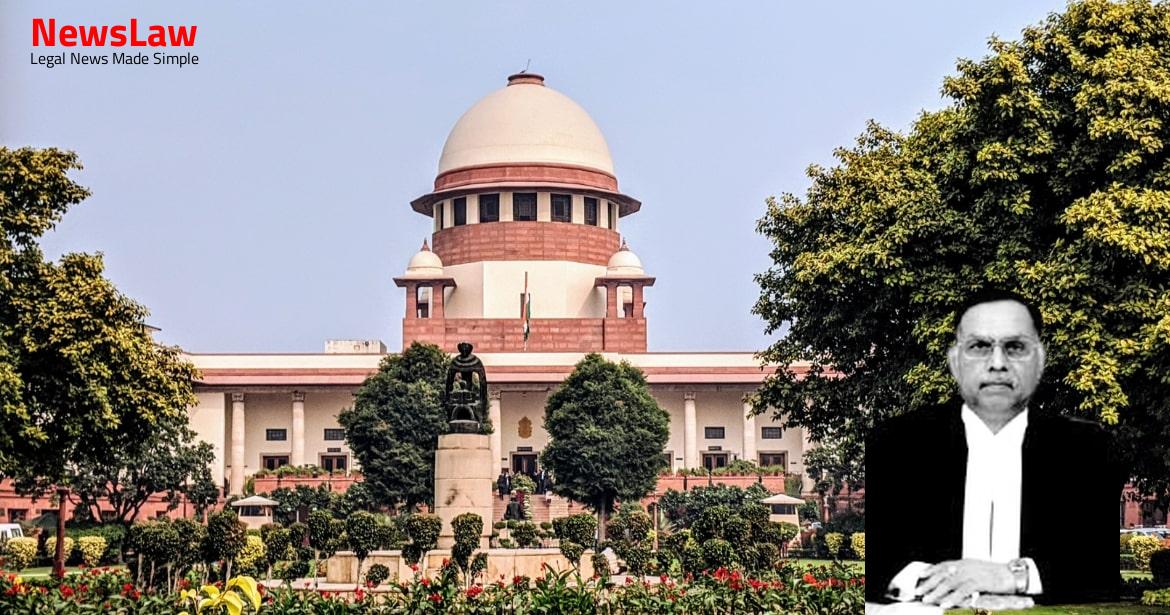Explore the judicial scrutiny of defining a ‘shop’ under the ESI Act in a significant legal case. Uncover the court’s analysis of commercial activities and the broad interpretation of the term ‘shop’ to safeguard the well-being of employees. The evolving definition of establishments engaging in organized commercial activities sheds light on the progressive nature of social welfare legislation. Follow along to understand the intricate legal considerations shaping the boundaries of coverage under the ESI Act.
Facts
- The ESI Court concluded that BCCI’s activities are purely commercial and subject to ESI Act.
- High Court upheld ESI Court’s findings, declaring BCCI as a ‘shop’ under ESI Act.
- Activities of BCCI considered commercial for the purpose of ESI Act.
- Petitioner, BCCI, appealed against the High Court’s decision.
- The Employees’ State Insurance Court, Bombay (ESI Court) heard an appeal against the order determining the contribution amount for the period from June 2010 to March 2014.
- BCCI had resisted the contribution claim citing that its primary purpose is to administer, promote, and control cricket nationwide, and thus, it should not be covered under the ESI Act.
- BCCI argued that it is not registered as a ‘shop’ under the Mumbai Shop and Establishment Act, and it is not primarily engaged in trading or commercial activities as per Section 1(5) of the ESI Act.
- The appeal pertained to a contribution amount of Rs. 4,93,350 determined by the ESI Court.
- The ESI Court was tasked with evaluating whether BCCI’s activities align with the criteria for coverage under the ESI Act.
Also Read: Challenging Legal Presumptions in Negotiable Instrument Cases
Arguments
- The BCCI argues that its activities do not fall under the definition of ‘shop’ as per the notification dated 18.09.1978.
- Counsel for BCCI relies on previous court decisions to support the argument that BCCI should not be considered a ‘shop’ under the ESI Act.
- ESI Corporation contends that the activities of BCCI are commercial and bring it within the definition of ‘shop’ under the ESI Act.
- ESI Corporation emphasizes the liberal interpretation of the term ‘shop’ in the ESI Act for the benefit of employees.
- The decision in the case of Bangalore Turf Club Limited is cited, highlighting the welfare nature of the ESI Act and the need for a broad interpretation to extend benefits to covered workers.
- The Memorandum of Association of BCCI and its primary objective of promoting cricket are central to the argument against classifying BCCI as a ‘shop’.
- The distinction between interpretations of similar terms in different statutes is emphasized, with a focus on the revenue earned by BCCI being utilized to support sports activities.
Also Read: Legal Analysis of Admission Irregularities in Educational Institutions
Analysis
- The term ‘shop’ in the ESI Act is used in a broader sense than its ordinary meaning, referring to any systematic economic or commercial activity.
- A ‘shop’ is considered a subset of the term ‘establishment,’ which is defined as a place of business.
- The ESI Act is a social welfare legislation aimed at providing benefits to employees in cases of sickness, maternity, and employment injury.
- Court interpretations emphasize a liberal construction of the ESI Act to fulfill its intended purpose of social welfare.
- The term ‘shop’ includes places where services are sold, systematic commercial activities are carried out, or where buying and selling of goods occur.
- In the context of the ESI Act, a ‘shop’ covers establishments engaging in organized commercial activities, such as the selling of tickets or entertainment services.
- The overarching goal is to ensure the health and well-being of workers through social security measures.
- The term ‘shop’ under the ESI Act should be interpreted expansively.
- Activities of Turf Clubs can be considered as ‘shop’ for the purpose of ESI benefits.
- The BCCI was considered a ‘shop’ under the ESI Act due to its commercial activities and profit-making nature.
- The definition of ‘shop’ has evolved with time and should be understood in the context of modern-day practices.
- Legislation like the ESI Act is a reflection of societal changes and should be interpreted accordingly.
- The High Court considered the relevant clauses of the Memorandum of Association of the BCCI.
- The BCCI’s activities were deemed as systematic commercial activities providing entertainment.
- Selling tickets was mentioned as part of the entertainment provided by the BCCI.
- The Memorandum of Association of the BCCI was examined in its entirety.
- No interference was seen necessary with the judgment and order of the High Court and the ESI Court.
- The Supreme Court is in agreement with the view taken by the High Court.
- Special leave petitions have been dismissed.
Also Read: Land Compensation Enhancement Case Summary
Decision
- The pending application(s) have been disposed of.
- The judgment in relation to the specific part (RPC) is as follows: [Include points from the judgment related to the RPC section here.]
Case Title: BOARD OF CONTROL FOR CRICKET IN INDIA Vs. REGIONAL DIRECTOR (2022 INSC 848)
Case Number: SLP(C) No.-013554-013555 / 2022



